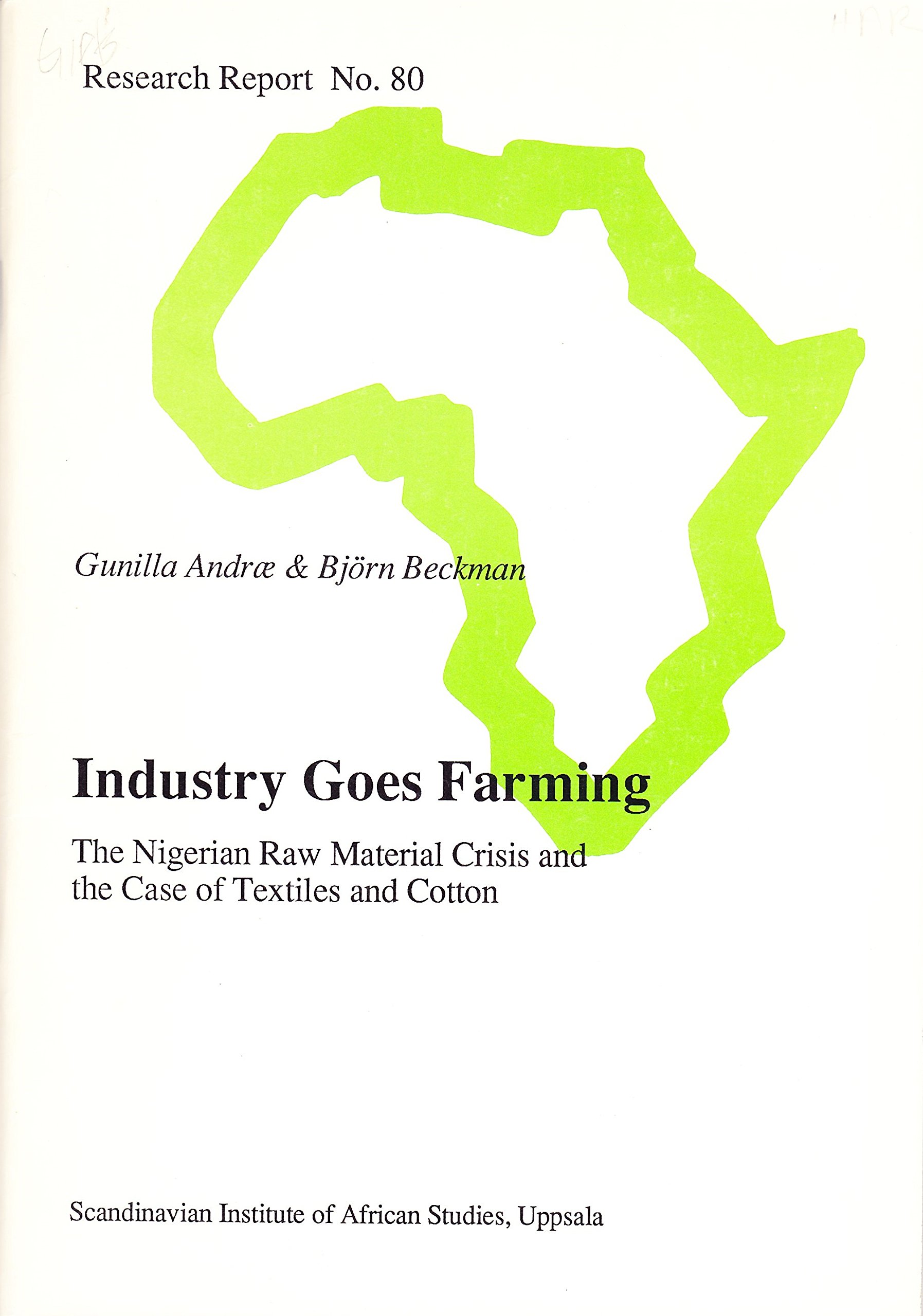By Yusuf Bangura
I’ve been reflecting on three issues since we returned from a two-week trip to Nigeria three weeks ago. Before that visit, I had not been to Nigeria for 14 years. My last visit was in 2010, even though I lived there for eight full years between 1980 and 1988 and spent a month there with my family at the end of 1999 and early 2000.
Despite my long absence, I tried to keep abreast of developments in the country, thanks to the availability of two leading television channels (Arise News and Channels) on YouTube, and popular newspapers like Premium Times, Daily Trust and This Day, which are available online—apart from my numerous interactions with friends and former students online through WhatsApp and email, and reading good books and articles on the country.
But the long absence threw up three big surprises, which those who experience them regularly may take for granted. I cannot resist sharing with you what we saw.
We were struck by the easy availability of well processed and packaged foods with local flavours; the seemingly ubiquitous use of debit cards and Point Of Sale (POS) machines for ordinary transactions; and the extraordinary way that afrobeats has crowded out Western music in public spaces.
Nigerians, it seemed to us, are being ineluctably connected or integrated by powerful economic and social forces despite the dysfunction that many observe or complain about at the central state level.
The local food processing industry is thriving

Anko, one of the brands of the biscuits in town
We were amazed to see that many local foods that were only available in informal markets and in unprocessed or unpackaged form when we lived in the country and visited in 2000 and 2010, can now be bought, well processed and packaged, in supermarkets, small shops and stalls.
These foods range from drinks (made from soya, tiger nuts, bananas, pineapples, guava, ginger, mangoes, lemons, oranges, watermelon, and other fruits and millet) to processed grains and tuber (such as for amala, dry ginger pap, beans, gari, fufu, plantain flour, and poundo or pounded yam, masa, ground rice or tuwo shinkafa, kunun-zaki and kunun tsamiya) and ready-to-eat meals (like instant mix moi moi, ogbono soup, egusi soup, pepper soup, and Nigerian jolof rice).
In addition, there is a flourishing biscuit business, with a variety of brands, 50 percent of which are believed to be dominated by local producers. Candy manufacturing, using local flavours, is also thriving. One can now buy tamarind, coconut, mango, melon, orange and pineapple sweets in glossy packages. The list of locally manufactured foods is endless.
It has been estimated that the food and beverage industry, which is valued at about USD20 billion, accounts for 22.5 percent of the manufacturing sector’s value, 4.6 percent of the country’s GDP, and a third of consumer expenditure. The Food and Agriculture Organisation estimates that about 50 percent of manufacturing jobs are in food processing.
It was clear to us that Nigeria is making important strides in upgrading and expanding its food industry, adding real value to its economy, and making extensive use of its abundant natural products.
The daughters of a close couple family treated us to delightfully tasty and spicy home-made yam balls when we visited them in Abuja. When we lived in Nigeria, yams were only pounded, boiled or fried. The yam balls were a wonderful innovation to us, which, we suspect, is likely to be packaged for mass consumption—if some smart entrepreneur has not already done it.
We wanted to buy a fair amount of smoked shrimps in Lagos to bring to Switzerland, since the shrimps available in Asian stores in our small town of Nyon are sun-dried. My wife, Kadie, told the driver to suggest an informal market where we could buy the smoked shrimps. I dreaded the stress of looking for a parking area in Lagos’s busy market streets and interjected that from what we had observed in food processing, it’s highly probable that smoked shrimps would be available in the supermarket very close to our hotel. We checked the supermarket and found that an entire building, called Village Market, was reserved for locally processed foods. Smoked shrimps were there and well packaged.
The only drawback we noticed in the new food habits is the slow death of authentic pounded yam. Poundo, which is supposed to be a substitute for pounded yam, doesn’t exactly taste like pounded yam. Poundo is made from yam flour rather than from boiled yam. We ate poundo at our hosts’ house in Abuja, at the lunch organised after the symposium of our host’s 70th birthday at the Yar’Adua Conference Centre, and at the Radisson hotel in Lagos. We wanted to eat the real or authentic stuff before we left Nigeria. We did that in Lagos at an elegant Yoruba restaurant, Ile Iyan, not from far from the Radisson hotel.
What all of this suggests is that Nigeria’s food processing sector cries out for serious research. Professors in the social science faculties in the universities should encourage their doctoral students to venture into this promising field of study. There is clearly a need to advance the pioneering work that Bjorn Beckman and Gunilla Andrae did in the 1980s and 1990s on bread, which produced The Wheat Trap, and cotton, which resulted in Union Power in the Nigerian Textile Industry. This time the focus should be on the great transformation that is taking place in the food processing sector.
All successful industrial states, including recent ones, such as the East Asian countries and India, passed through the important stage of food processing. They all moved from the sale of unprocessed to processed foods as their urban populations found domestic preparation of unprocessed foods time-consuming. They also primarily consumed foods that were locally produced instead of consuming imported foods.
The second or self-reliant part of the transformation of the food processing sector is yet to be realised in Nigeria. However, reports suggest that local producers are gradually edging out importers. The preference of Nigerians for local food flavours seems to be playing a big part in this. The dramatic, more than three-fold devaluation of the naira in the last year and half is also likely to favour local producers, especially those whose inputs are less exposed to foreign sources or suppliers. However, the incomes of consumers, which have been terribly hit by the devalued naira and inflation, need to grow for the ongoing transformation to be sustainable.
 Is Nigeria becoming a cashless economy?
Is Nigeria becoming a cashless economy?
One of the amazing things we observed in our trip is how rapidly large parts of the Nigerian economy are being rendered cashless. We found it very difficult to change dollars into naira. Most of the transactions we wanted to make required possession of Nigerian debit cards.
When we arrived in Abuja from Addis, we changed USD200 at a rate of USD1 to N1,650. We thought it would be easy to change dollars in town if we exhausted the money we had changed. However, we were poorly informed about the mode of monetary transactions in the country. We later realised that it was very difficult to have access to naira. This, we understood, was due to two developments.
The first is the long and persistent lag of the cash crunch that occurred just before the 2023 general elections when the Central Bank of Nigeria (CBN) changed the currency and citizens found it difficult to change their old notes to the new notes. And the second is what looks like a successful citizen response to the CBN policy. Many Nigerians made a massive switch by acquiring debit cards in order to avoid the problems of liquidity or cash availability in banks.
This switch to debit cards has encouraged an extensive growth of Point of Sales (POS) transactions across large segments of the economy. Many people find it easy to pay for goods and services by simply swiping their debit cards on the POS machines. It has been reported that the POS machines used in Nigeria reached 3.04 million in July 2024, representing a 32% year-on-year increase over the same period last year. From our observation, POS machine payments in Nigeria are just as seamless as in Europe.
This transformation has been extraordinary, especially as it was only in the last few years that the POS system became universalised in Western economies. The EMV chip card technology that introduced the handheld payments machine was commercialised only in 2015, and the *Toast Go* fully integrated handheld POS system that allows for orders to be taken and payments made anywhere in a restaurant came into the market in 2018.
The POS system is also well entrenched in Namibia, Botswana and Cape Town as we discovered during our holidays in those three places in October and November last year. But there is one big difference: western debit cards are almost universally accepted in the Southern African countries; Nigeria’s POS ecosystem on the other hand is wholly Nigerian—in other words, the POS machines only work with Nigerian debit cards.
As non-residents, we encountered both a naira cash crunch and problems using our Western debit cards. We had to find ways to overcome the problems.
On the last day of our stay in Abuja, we wanted to change some dollars into naira at the airport. But the informal currency trader complained about naira scarcity and gave us a terrible rate (USD1 to Le1,520). We refused to make the transaction, thinking that we would get a better deal in Lagos. But it was worse in Lagos when we got there. The currency traders at the local airport area told us they would only accept a debit card transaction as they didn’t have any naira. We gave them the dollars but had to use our driver’s debit card to store the naira. Their rate was the same as the rate we rejected in Abuja.
We faced similar problems when I wanted to buy African kaftan suits in Abuja and pay for our meals at the Ile Iyan restaurant in Lagos. My UBS Mastercard was useless on both occasions. The kaftan trader wanted to be paid in cash or through a Nigerian debit card. He later accepted payment in cash dollars, but told me he was short of naira and would give me the change only through a POS system. Our host solved the problem by receiving the change in his naira debit card.

Not anywhere in Nigeria but Nigeria can do even better
There was a misunderstanding at the Ile Iyan restaurant in Lagos. Before we sat down for the dinner, I asked one of the waiters whether the restaurant accepted Mastercards and he answered in the affirmative. It turned out that he was referring to Nigeria’s own version of Mastercard. I had to pay in cash Euros, which, fortunately, he accepted.
Nigeria’s huge market and weak exposure to foreign tourists means it can create and thrive on its own Nigeria debit cards-only POS system. This is a major development in advancing the growth of its national market. Most of those who transact businesses in the country are Nigerian debit card holders. Western debit cards are only accepted in hotels and large businesses like the Nike Arts and Culture Centre in Lagos that are heavily patronised by tourists.
Afrobeats rules the airwaves
The third surprise was the unrivalled dominance of afrobeats on Nigeria’s airwaves and public spaces. Afrobeats superiority in Nigeria and Africa in general was not really news to me. I follow the popular music scene closely and I’m a huge fan of afrobeats. Our driver in Lagos was surprised that I could hum or sing along when his car radio blared out great afrobeats songs. His radio was on a default afrobeats channel throughout our stay in Lagos.
The surprise for us was to experience a constant feed of afrobeats songs on the radio, in restaurants, hotels and other entertainment spots we visited and an almost complete absence of Western music, including even the almighty rap and R&B.
Nigeria always had a rich tradition of local pop music, such as highlife, juju, fuji, Fela’s afrobeat, and Nigerian gospel. But these genres of music always competed or coexisted with foreign music, such as soul, R&B, reggae, country, Western pop and rap. Even the great Fela did not dominate Nigeria’s music scene. And when I was living in the country in the 1980s, the dominant music we danced to in parties was not Nigerian. It was strongly Western. Singers like Michael Jackson, Bob Marley, Jimmy Cliff, Lionel Richie, Peter Tosh, The Bee Gees, Aretha Franklyn and Whitney Houston were top drawer.
So it was quite astonishing to see that afrobeats has almost squeezed out Western—indeed, most foreign—music from public spaces. Music critics in some countries, such as Ghana and Cameroon, have complained that Nigerian DJs deliberately refuse to play non-Nigerian songs. Ghana even tried to impose a ‘play Ghana music only’ policy towards the end of 2023 to prevent the spread of Afrobeats in Ghana.
However, what needs to be recognised is that there is so much talent, extraordinarily good sounds, and musical output in Nigeria that the country seems content to largely consume its own music. The music scene is highly competitive. Only about a dozen records have spent six weeks or more at Number One on the Nigerian Turntable Chart since it was launched in 2020.
I do not think that the variety and volume of locally produced sounds in the 1980s match what is being produced today. Nigerians seem to have concluded that foreign sounds are no longer better or as good as Nigerian sounds. This may explain the total domination of Afrobeats in the country. This is an asset that many Nigerians may not be aware of or take seriously.
It seems to me that the Nigerian music market is following the US, UK and other developed music markets by becoming a relatively closed market. This is what success in a specific line of activity does: it allows a country to develop its own national space or ecosystem in generating and consuming its products even when those who live in that space continue to quarrel, sometimes bitterly, among themselves.
Conclusion
There are many forces trying to tear Nigeria apart. Intercity travel has become highly bifurcated. Because of kidnappings, most elites seem to have opted to travel only by air and have left the unsecure roads to the poor masses.
We wanted to visit an old school friend at Idanre in Ondo State, but everyone we spoke with advised us to not travel by road. When I was living in Zaria, I once travelled by road to Akure, which was more than 600 kilometres, on a research trip on unions and structural adjustment. We had also travelled more than 1,000 kilometres or 12 hours by road from Windhoek to Gaborone last November. A road journey from Lagos to Akure is only four and half hours, which we could have done when we missed our flight from Lagos. But we were scared of travelling by road and cancelled the trip.
As this piece has shown, however, private industrialists and artists are making great efforts to connect Nigeria and create a home market, despite the insecurities in some domains and much dysfunction at the political level.




























